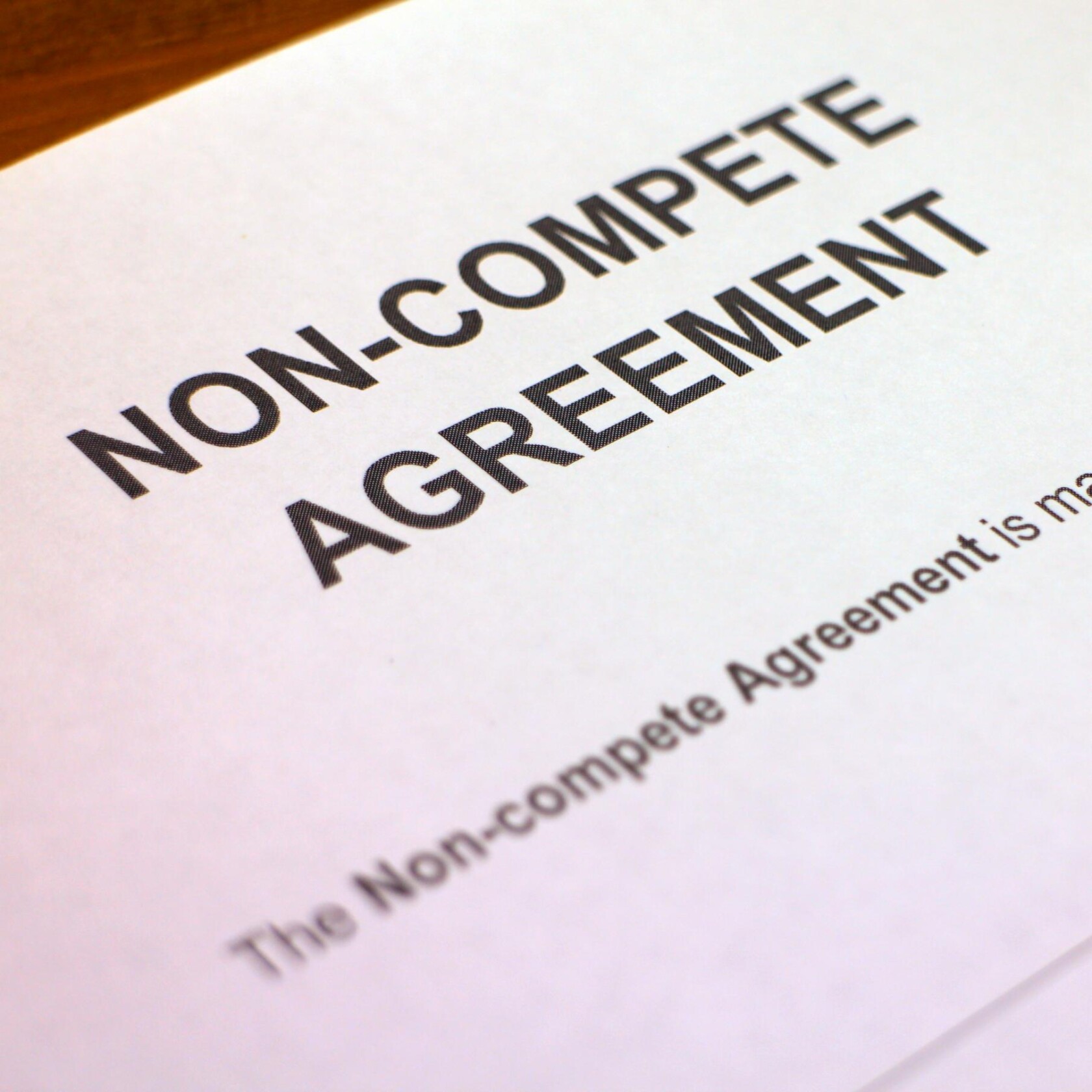
On April 23, 2024, the Federal Trade Commission (“FTC” or the “Commission”) voted to finalize a rule abolishing the vast majority of employee noncompetes across the United States (the “Noncompete Rule” or “Rule”). The FTC first announced its proposal to ban noncompetes in 2023, prompting over 26,000 public comments in response. The FTC has been reviewing these comments ever since, culminating in this week’s vote during an open meeting of the five-member Commission. The vote to adopt the rule was 3-2, with the Commission’s three Democratic members voting in favor of the rule and its two Republican members dissenting.
The Noncompete Rule bans noncompete agreements with employees of all ranks and seniorities in virtually all industries across the United States. The core of the rule is the FTC’s finding that noncompetes are an “unfair method of competition” under Section 5 of the FTC Act, both to the extent that noncompetes can be exploitative and insofar as they can prevent the formation and growth of new competitors.
The FTC’s vote to finalize the Noncompete Rule is not necessarily the final word on worker noncompetes. The U.S. Chamber of Commerce, among other groups, has already filed a lawsuit challenging the Noncompete Rule, seeking injunctive relief to delay the effective date as well as a ruling to vacate the Noncompete Rule in its entirety. In fact, two of the FTC’s five Commissioners appear to be persuaded by the challengers’ arguments, with one Commissioner expressing during the open meeting that she believes the Noncompete Rule “likely will not survive legal challenge.”
Overview of the FTC’s Noncompete Rule
The FTC’s Noncompete Rule has three main components:
- For the great majority of workers, the Noncompete Rule declares it an “unfair method of competition” to enter into or enforce a noncompete agreement. “Workers” are defined broadly to include employees, independent contractors, externs, interns, volunteers, apprentices, and sole proprietors.
- Before the effective date of the Rule, employers that have noncompetes subject to the Noncompete Rule must notify affected employees that their noncompete will not and cannot be enforced. The Noncompete Rule includes model language to this effect that can be shared with employees.
- To the extent that a noncompete agreement may be permitted under state law, the Noncompete Rule states that it preempts such state law.
In terms of timing, the Noncompete Rule is scheduled to go into effect 120 days after its publication in the Federal Register. Although the Rule has not yet been published, the effective date is likely to fall in late August or early September of 2024.
What Does the FTC Consider To Be a Noncompete?
The Noncompete Rule applies to “traditional” noncompete clauses, i.e., prohibitions on work after employment ends. But the Noncompete Rule also applies to provisions that “penalize” a worker (e.g., forfeiture of severance or equity, buyout clauses) for seeking or accepting work after the conclusion of the person’s employment.
Finally, the Noncompete Rule includes a catchall provision to capture other types of agreements that “function[ ] to prevent” a worker from accepting different work after the conclusion of their employment. This catchall language may potentially encompass other forms of restrictive covenants, including non-solicitation agreements. While the FTC’s rulemaking notice refers to non-solicitation clauses, customer- or client-based “no business agreement[s],” and non-hire agreements as “generally not non-compete clauses,” the FTC notes that such restrictions could potentially rise to the level of a prohibited noncompete based on a fact-specific inquiry. It remains an area of uncertainty where the FTC or courts would draw the line.
Does the Rule Apply to Already-Executed Noncompetes?
Yes, with one exception. The Noncompete Rule does not disturb noncompete agreements made before the Rule’s effective date for those workers whom the FTC defines as “senior executives.” Instead, the Rule only declares it an “unfair method of competition” to enter into or enforce a noncompete agreement with a senior executive when that agreement is made after the Rule’s effective date. A “senior executive” is defined as a worker who earns at least $151,164 per year (the 2025 salary threshold for a “highly compensated employee” under the Fair Labor Standards Act) and serves in a “policy-making position” with the organization. For workers who are not “senior executives,” however, pre-existing noncompetes will no longer be enforceable after the Rule’s effective date.
To be clear, while pre-existing agreements with senior executives will remain enforceable after the Noncompete Rule’s effective date, employers will not be able to enter into new noncompetes with “senior executives” after said date.
Are There Any Exceptions?
Yes, there are a few.
For one, by statute the FTC does not have authority to prevent “unfair methods of competition” when done by certain banks, certain nonprofits (including certain nonprofit health care providers), certain common carriers, or persons subject to the Packers and Stockyards Act of 1921. These sorts of organizations will therefore be exempt from the Noncompete Rule. That said, there are ambiguities in the scope of some of these exemptions that will need to be carefully considered.
For instance, even though nonprofits generally fall outside the scope of the FTC Act, the scope of this exemption is unsettled and can be hazy. Some nonprofits use management or administrative corporations that may, themselves, be for-profit entities. Some health care organizations use for-profit medical groups or professional corporations to employ physicians and other professionals that are otherwise subject to a “corporate practice of medicine” prohibition. Additionally, nonprofit hospitals sometimes contract with for-profit staffing company to provide employee coverage. Any of these sorts of for-profit entities may well be subject to the Noncompete Rule. Therefore, nonprofit organizations such as universities, health systems, and other charitable entities should be careful to identify those members of their corporate family that may be subject to the Noncompete Rule — and those that are not. These organizations therefore should take care not to send the required notice to those employees who are not subject to the Noncompete Rule.
Second, the Noncompete Rule only applies to agreements that restrict workers from taking work with another employer “after the conclusion” of their employment. Therefore, subject to state law, an employer would still remain able to prohibit current employees from working for a competitor.
Finally, the Noncompete Rule includes three explicit exemptions:
- Sale of a Business. The Noncompete Rule does not apply to noncompetes “entered into by a person pursuant to a bona fide sale of a business entity, of the person’s ownership interest in a business entity, or of all or substantially all of a business entity’s operating assets.” Therefore, noncompetes entered into in connection with the sale of a business will remain enforceable under the Noncompete Rule.
- Prior Breaches. The Noncompete Rule does not apply “where a cause of action related to a non-compete clause accrued prior to the [Noncompete Rule’s] effective date.” In other words, the Noncompete Rule is only prospective in effect. If a worker violated an otherwise valid noncompete before the Rule’s effective date, the worker may still be subject to legal action for that violation.
- Good-Faith Belief the Rule is Inapplicable. Finally, the Noncompete Rule does not apply “where a person has a good-faith basis to believe that [the Noncompete Rule] is inapplicable.” For example, if a nonprofit hospital believes in good faith that it is exempt from the FTC’s jurisdiction, then that good-faith belief provides it with a defense in any enforcement proceeding — even if a court ultimately determines that the FTC’s authority applies to that nonprofit.
Does the FTC Have the Power To Do This?
It is unclear. The FTC has never attempted anything of this scope before, and litigation over the Noncompete Rule will raise a host of interesting constitutional, statutory, and administrative issues. One of the leading grounds for a challenge will be the so-called “major questions doctrine,” which requires clear Congressional authorization before an administrative agency will be found to have the power to decide major policy questions. The FTC, however, will point to a 1973 decision by the D.C. Circuit Court of Appeals, which held that the FTC has the authority to promulgate “substantive” rules about what constitutes unfair methods of competition. These precedents are difficult to reconcile, and it is possible that different courts may decide these cases in seemingly inconsistent ways. There is even a potential for different results to apply in different parts of the country.
What Should I Do Now?
In the immediate term, we will be closely watching the lawsuits filed by the U.S. Chamber of Commerce and others. One or more courts might issue a nationwide injunction barring the Noncompete Rule from taking effect pending a full trial on the merits, in which case the Rule would not go into effect for the foreseeable future.
If, however, the Noncompete Rule survives the initial round of court challenges, then businesses should be prepared to move quickly in anticipation of a country without noncompetes. At a minimum, before the effective date of the Noncompete Rule, businesses should be prepared for the following:
- Prepare to distribute the required notices informing employees that their noncompetes will no longer be enforced. However, to the extent that existing noncompetes are in place with senior executives above the earning threshold and who have the requisite policy-making authority, such senior executives should be excluded from the distribution of that notice.
- Businesses should explore whether they might have other ways — such as nondisclosure agreements or fixed-duration employment contracts — to accomplish some of the same goals as noncompetes.
- Businesses should review their other restrictive covenants, including non-solicitation and no-hire clauses, to ensure those clauses are narrowly tailored to protect their legitimate interests, thereby reducing the risk that they will be challenged as being within the Noncompete Rule’s catchall provision prohibiting terms that “function[ ] to prevent” a worker from working for a different company after employment.
- Businesses should have confidentiality agreements in place with employees and should prepare for a potential wave of trade secret litigation, as employees are increasingly enticed to leave their employment to work for competitors. This means businesses will need to be prepared for increased costs of data and forensic work that are generally prevalent in trade secret and confidentiality litigation matters.
Ben Dryden and David Sanders will be speakers at our upcoming webinar, “The FTC Noncompete Rule: Where Do We Go From Here?” on Thursday, May 9 at 12:00 p.m. EDT.



